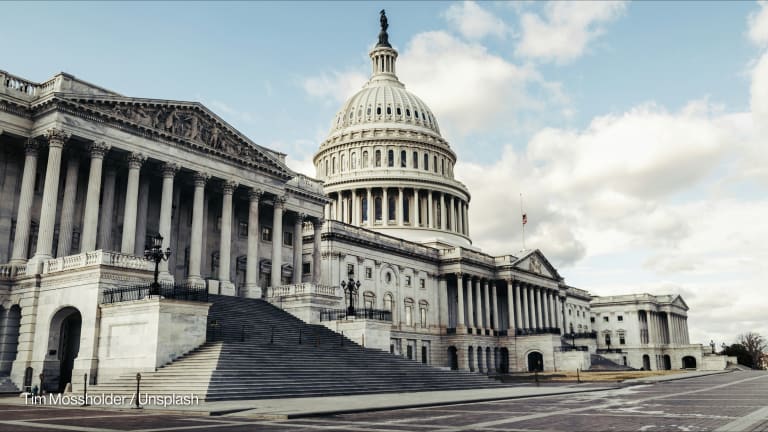
WASHINGTON — The United State House of Representatives passed the BUILD Act easily on Tuesday, moving the bill yet closer to becoming law.
The Better Utilization of Investment Leading to Development Act, would create a new agency that would combine the Overseas Private Investment Corporation and the U.S. Agency for International Development’s Development Credit Authority, as well as expand U.S. development finance capabilities. The new agency will have the ability to make equity investments, have double the capital to invest, and have a grant-making facility for project development and technical assistance.
The bill was approved unanimously in the House Foreign Affairs Committee and after brief comments on the floor of the House on Tuesday, it was passed with a voice vote.
See more coverage of the BUILD Act:
► BUILD Act for new US development finance corporation sails through Senate committee vote
► USAID administrator shares view on development finance legislation
► Q&A: OPIC's Ray Washburne on the proposed US development finance institution
Rep. Ted Yoho, a Republican from Florida, who was the lead sponsor of the bill, spoke briefly, urging his fellow lawmakers to pass the bill, which he said would “make development finance more efficient and nimble.”
OPIC, the current U.S. development finance agency has been operating without a long-term authorization for a decade and its tools have not been substantially changed since it was created in 1971.
The U.S. is the leader in understanding capital markets and the new development finance corporation would help create greater global stability, lift people out of poverty, and help build relationships with countries as they transition from aid to trade, Yoho said.
“By creating a modern, 21st century development finance system that better utilizes private sector-led development, we will help countries build their economies so that they can transition from needing our assistance,” he said. “Taking countries from aid to trade is the end goal.”
A lack of access to capital limits growth in the world’s least developed countries. The International Finance Corporation estimates that micro-, small-, and medium-sized enterprises in emerging markets have an unmet need of $5.2 trillion every year, said Rep. Ed Royce, a Republican from California and chairman of the House Foreign Affairs Committee, in his remarks to the House.
“Taking countries from aid to trade is the end goal.”
— Rep. Ted Yoho“America has an undeniable interest in supporting the development of vibrant and stable economies around the world. Healthy private sectors promote good governance, support thriving civil societies, and help reduce civil strife. The resulting stability is good for our national security, and also benefits U.S. exports and jobs,” he said.
Royce went on to mention China’s Belt and Road initiative and the need for the U.S. to offer an alternative to countries seeking growth, through mechanisms that uphold governance, transparency, debt sustainability, and social and environmental safeguards.
Rep. Adam Smith, a Democrat from Washington and co-sponsor of the bill, said it was a big step in showing that the U.S. is committed to supporting less developed countries and will help support critically needed projects.
“Make no mistake; this reform is only part of our commitment to providing help to those most in need around the world. We must take an all-in approach to our foreign assistance that includes robust direct assistance from the United States,” he said in a statement.
Advocates for the bill quickly released statements praising the passage of the legislation.
“This bill takes an innovative approach to helping developing countries and will serve as a valuable complement to the important work that American foreign assistance does to save lives, spur economic growth, and lift millions out of poverty,” Tom Hart, the North America executive director at the ONE Campaign said in a statement.
The U.S. Global Leadership Coalition’s Chief Executive Officer Liz Schrayer added that the passage of the bill was a “strong bipartisan example of Congress prioritizing effective and results-driven global development programs.”
“While development finance is not a replacement for foreign assistance, today’s vote clearly represents a win to strengthen an underutilized and critical part of America’s global economic toolkit. We urge the Senate to consider the BUILD Act as soon as possible,” she said.
The Senate version of the legislation was approved easily by the Senate Committee on Foreign Relations and is awaiting a vote on the Senate floor, which supporters hope will happen before the August recess. The Senate vote may present a greater hurdle — it was in the Senate that an attempt to give OPIC a multiyear reauthorization failed a few years ago, though it appears that this law may have the support it needs.
If the legislation is approved, it would mark a remarkable turnaround — the Trump administration’s first budget called for eliminating OPIC and recent attempts at OPIC reauthorizations fell short.
The White House has expressed support for the legislation, and OPIC CEO Ray Washburne called it “essential” in a statement Tuesday and said it would allow the U.S. government to “be better equipped to drive economic growth in emerging markets and provide an alternative to state-directed initiatives that can leave developing countries worse off.”








